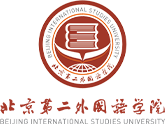
Mr. Zhou Xiqing was a famous patriotic scholar, translator and social activist. He had served as secretary-general of the central supervisory commission of the Revolutionary Committee of the Chinese Kuomintang and also as its consultant. He also served as a counsellor of the State Council. Zhou transferred to the Department of English at Beijing International Studies University (BISU) in 1973 and had worked there until his retirement.
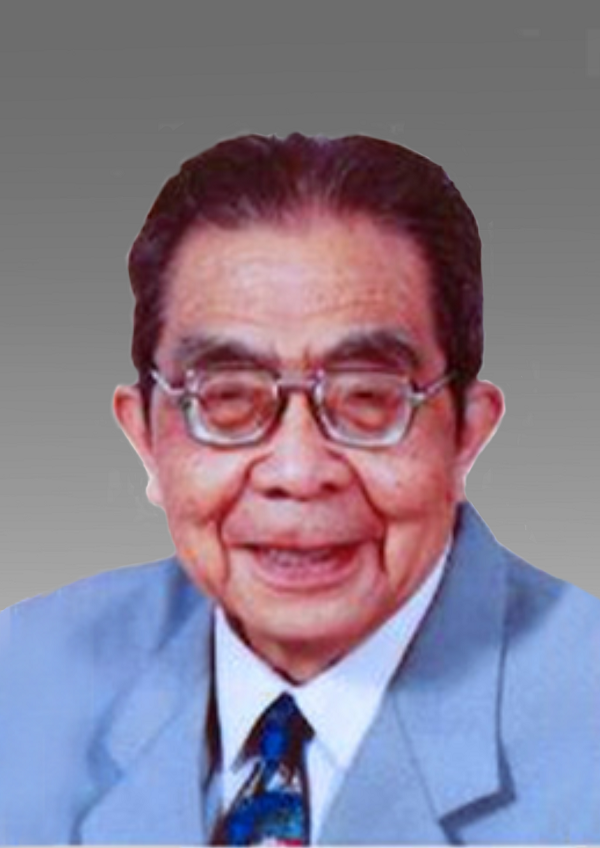
A photo of Zhou Xiqing [Photo provided by bisu.edu.cn]
Zhou was born in September 1915 in Tokyo, Japan. In 1936, he graduated from the department of management of Shanghai Jiao Tong University and went to the University of Pennsylvania, USA to pursue his master’s degree in economics. In 1937, the War of Resistance against Japan broke out. Zhou returned to China and participated in the anti-Japanese and national salvation movement. In May 1946, he was employed by the International Military Tribunal for the Far East and did translation work in Tokyo on human and material evidence needed for the prosecution of Japanese Class-A war criminals. In 1973, he transferred to the Department of English at BISU to work as an English teacher. He had served as the first council member of the Translators Association of China and a member of the Beijing university teachers' professional title evaluation committee. Since 1988, Zhou had served as a counselor of the State Council for two sessions. In 1992, he was given an expert allowance by the State Council for his early return to the motherland. On March 16, 2004, Zhou died in Beijing at the age of 90.
Zhou’s father Zhou Zhenlin was a pioneer of the Revolution of 1911, the Chinese bourgeois democratic revolution led by Dr. Sun Yat-sen which overthrew the Qing Dynasty. It was his contribution to revitalize the Chinese nation at the time.
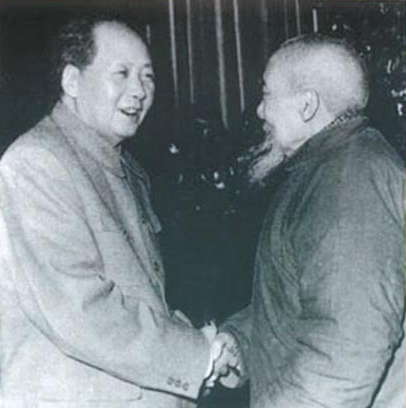
Chairman Mao shakes hands with Zhou Zhenlin in 1961 [Photo provided by bisu.edu.cn]
Witness to the Tokyo Trial
In 1946, Zhou was employed by the International Military Tribunal for the Far East as a translator.
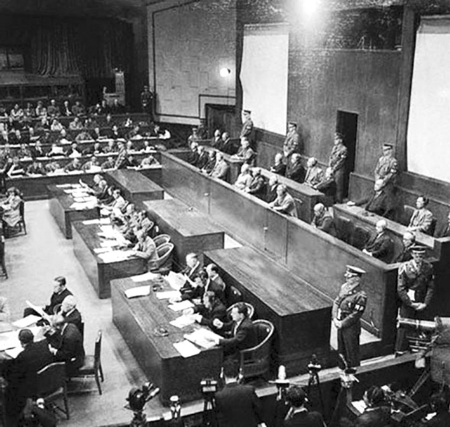
Scene picture of the Tokyo Trial [Photo provided by bisu.edu.cn]
At that time, Chinese representatives were good at English and Japanese and familiar with Anglo-American law. Chinese experts and Zhou translated the criminal evidences of Japanese aggression against China into English, making war criminals accountable for their crimes.
Dedicated to higher education
Zhou had worked as an English teacher at BISU since 1973. He taught translation, intensive reading, extensive reading, English lexicology and other courses. In August 1979, he was among the first batch of associate professors of BISU. In 1983, he was among the early mentors for graduate students.
Since Zhou joined in BISU, he participated in national scientific research, including serving as the editor-in-chief of the English Proverbs Dictionary, one of the national Dictionary Planning projects. The dictionary was hard to compile. Zhou and his team read huge English, Japanese and Chinese materials and cited more than 30 reference books in the dictionary. The English Proverbs Dictionary was published in 1987 and sold out fast. Zhou also jointly compiled An Introduction to Modern English Lexicology with Zhang Yunfei, a professor of Beijing Normal University.
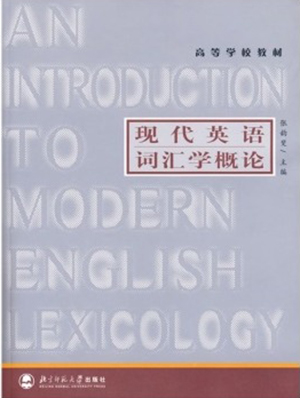
An Introduction to Modern English Lexicology jointly written by Zhou Xiqing and Zhang Yunfei [Photo provided by bisu.edu.cn]
In October 1979, Zhou initiated the Foreign Language Education, later renamed the Journal of Beijing International Studies University. It played an important role in communicating foreign language education and learning about overseas theories of foreign language teaching.
Zhou dedicated his life to higher education and Sino-Japanese cultural exchanges and wrote many works in English and Japanese.

Links
